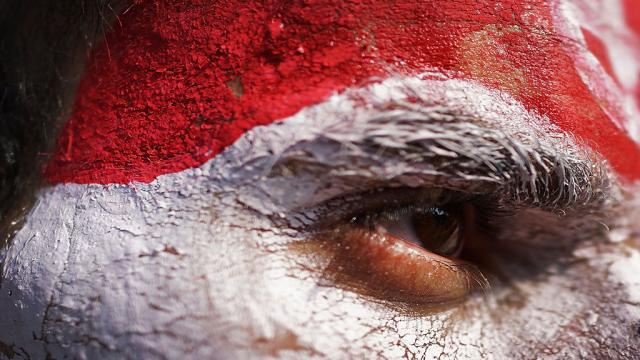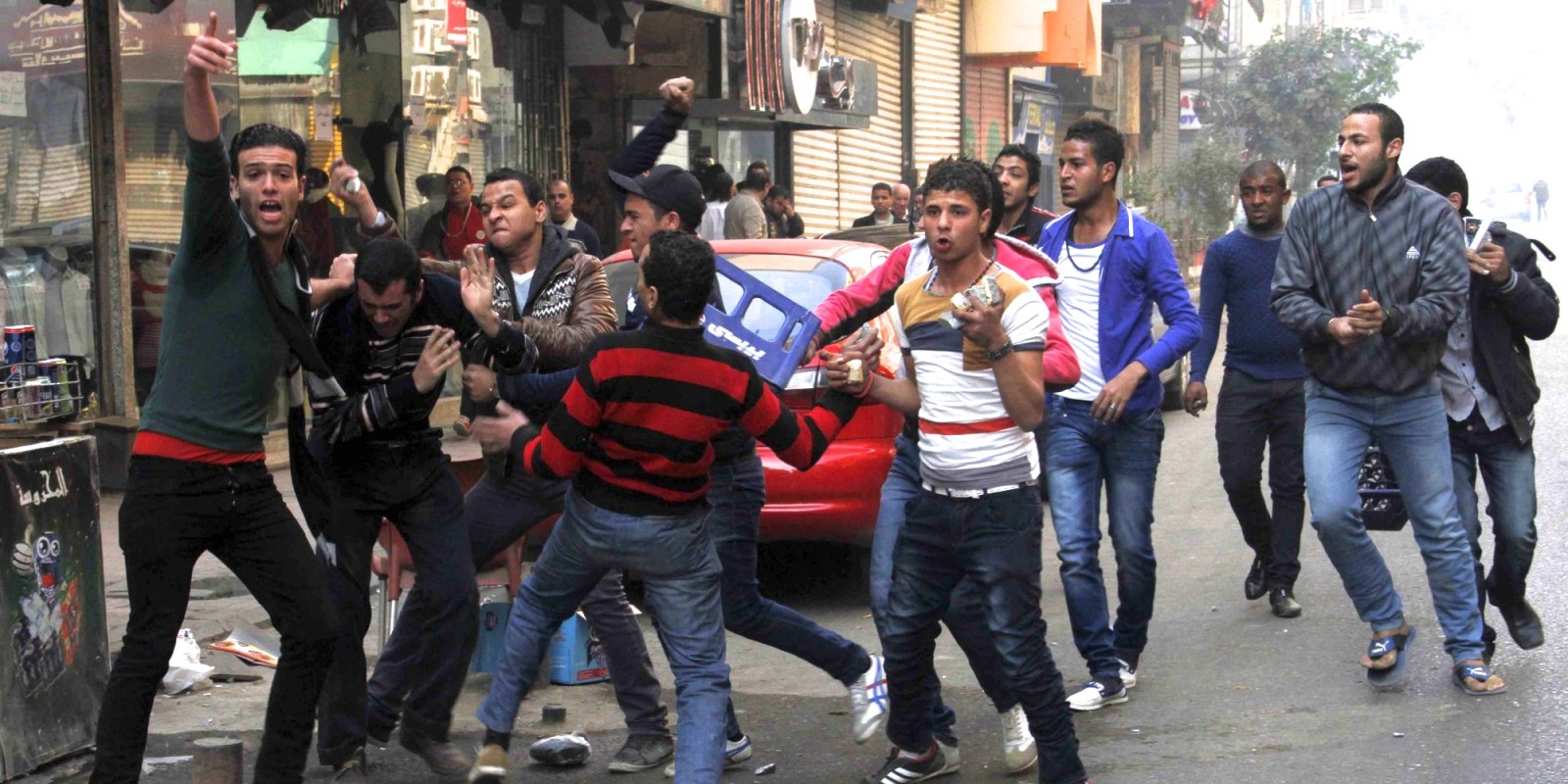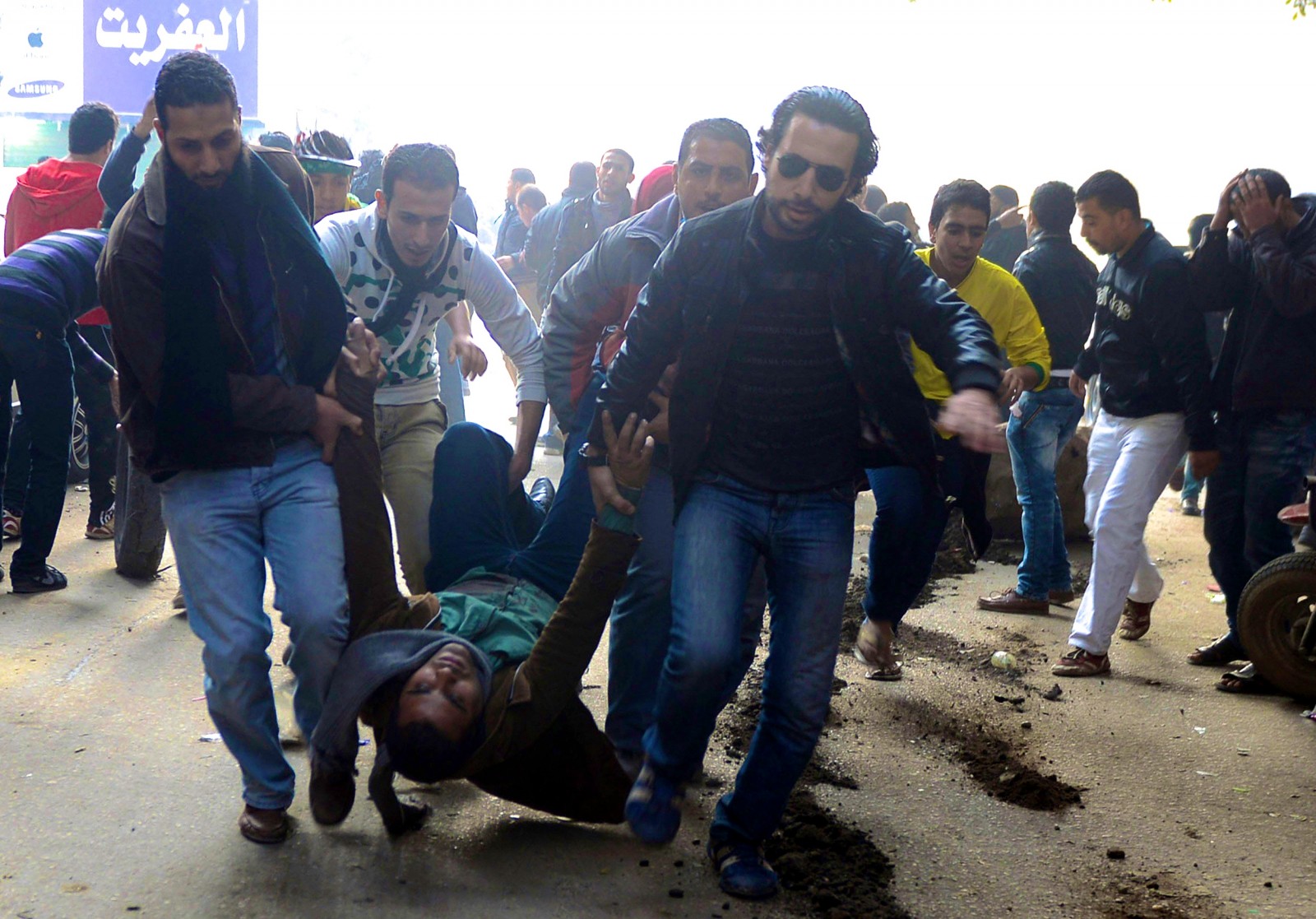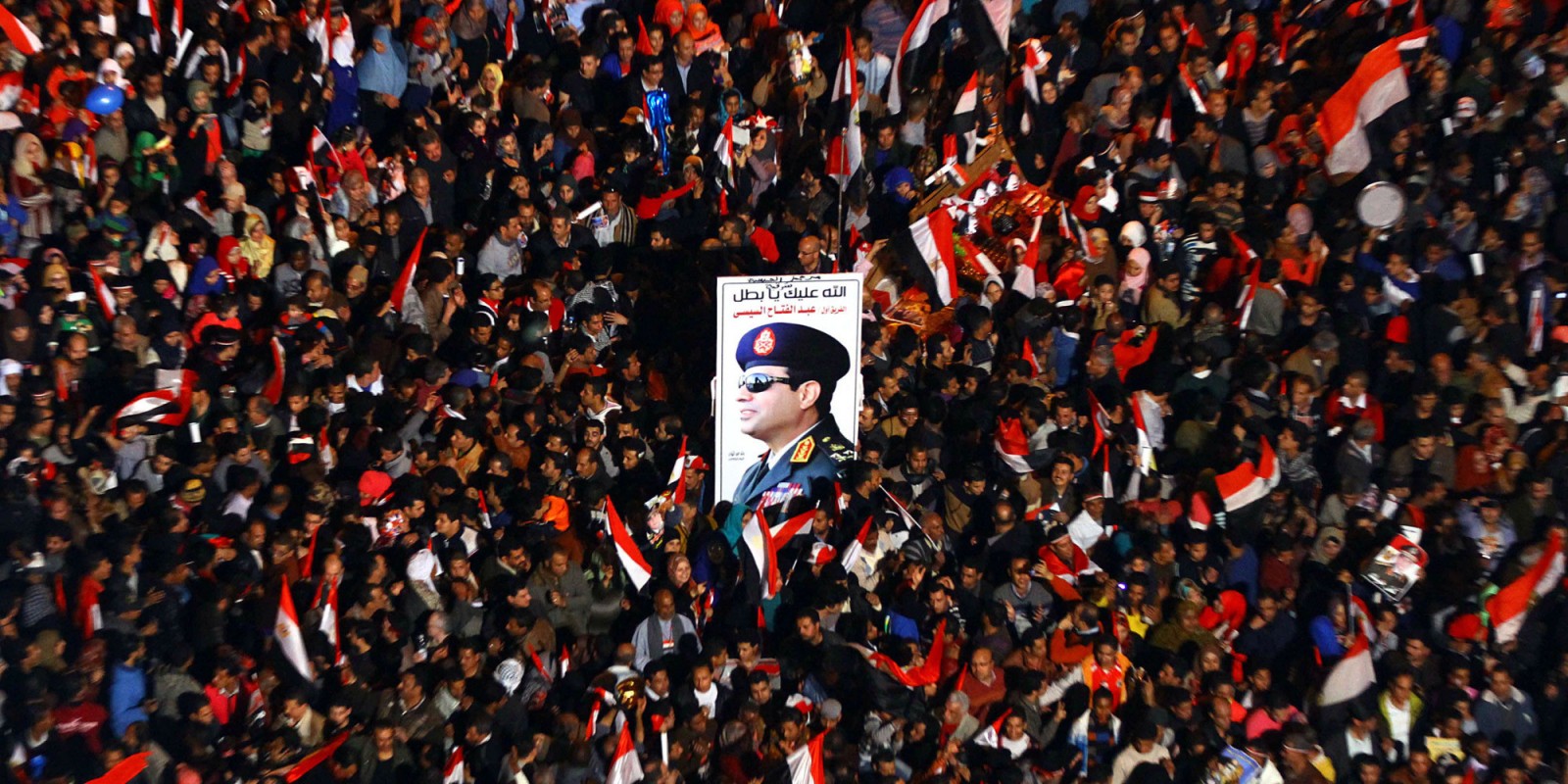
CAIRO – It's early morning in the Egyptian capital. The sun is beginning to peek over the satellite dishes strewn across the rooftops of the city's urban sprawl.
The cries from the adjacent room are biting. Mahmoud Gaber moves to the door, props his head to one side and listens. Inside, the cries of a young boy can be heard: the whimpering of a 7-year-old.
“This happens almost everyday,” Gaber confides, pouring tea into our cups as he points to two framed pictures hanging on the wall. “That is Ahmed in the other room, and that is Mahmoud, my first son.”
The man looks at the ground. Words do not come. He waits, wiping a few tears that have formed.
He has the eyes of a man who does not sleep much. Then Mahmoud tells of the day his son Mahmoud was shot and killed by Egyptian police.
“He was out on the street, going to get food. We were all watching from the balcony,” Mahmoud says, recounting the horrific day on January 31, 2011, the height of the Egyptian uprising that ousted President Hosni Mubarak 11 days later. Motioning me over to the small balcony, which is barely large enough for two people to stand on, he continues:
"Ahmed was watching and I came just as I heard the gun shots. When I got to the balcony, Ahmed was shaking. When I looked down to the street below, I saw Mahmoud on the ground. He was bleeding. I ran to him, but it was too late. He was dead. Shot by Mubarak.”
As he retells events from the fateful day, young Ahmed emerges from his room asking for something to drink. He moves slowly to the bathroom down the hall, still lined with images of his slain brother.
“Ahmed struggles with the violence he saw during the uprising," his father says, "and seeing his brother shot and killed right in front of him. I have taken him to a doctor, but it is too expensive for us to have the treatment so we watch over him daily and hope he will get better."
Ahmed returns to the room, turns on the small television set and watches Arabic cartoons, part of his daily routine before school. He is a small boy, but appears otherwise normal. He jokes about Spongebob Squarepants and laughs at a few jokes. His father says this is a good day – better than yesterday. “He just cried and tried to hit me and his mother over and over, demanding that Mahmoud come and play with him," adds Mahmoud.
"It is sad to watch, but I know a few other families going through similar experiences. We don’t know what to do.”
In Egypt, where approximately one thousand people were killed during the 18-day uprising in January and February of 2011, the psychological effects of murders by Egyptian police are still present and openly felt. Last summer’s military incursion into a sit-in by supporters of former President Mohamed Morsi, which left over 500 dead and hundreds wounded, was only the most recent massacre.
There is little recourse for the Gaber family and many others like theirs who lost loved ones. The government allocated funds for families of people killed during the 2011 uprising. But, as Mahmoud says, “it’s barely enough to survive on. And then there is Ahmed. What are we supposed to do with him? He needs help.”
For Egyptians, the stigma surrounding psychiatry remains strong, and many families stay away out of a sense of honor; social norms still posit that seeing a therapist is akin to telling the world you have a problem, as it was viewed in the United States decades ago.
Noha Bassiouny is a Cairo-based psychologist who sees patients on a daily basis for a range of ailments, “but most of them are simply depressed,” she says. Now middle-aged, after graduating from UCLA and working in the profession for over two decades, Bassiouny says the uprising and subsequent violence has scarred Egypt and Arab society as a whole. She argues that families need outlets to grieve and move past the fatal traumas they experienced.
“Look at all the children in this country, in Tunisia and Libya and elsewhere. I wonder what is going to happen to them and how are they going to deal with the trauma they witnessed and what they are feeling?” asks Bassiouny, putting her cup of coffee on the table and moving to the window. She points down at the street below, where a massive white stone wall has been erected forcing vehicles and pedestrians to find an alternate route – and sees in the military's walls a symbol of the barriers facing Egyptians.
“We always want things to be stable, but the way Egyptians and Arabs for so long have dealt with these matters, in the mind, is to put up barriers and create a way of thinking that avoids dealing with the problems. This causes an inability to function and understand that the problems we have are normal,” she continues.
“Children like Ahmed need to be able to come to a doctor and talk about what is happening in their mind and what they are thinking. If they don’t, it will be a struggle that will affect everyone around them – and continue to create problems for the children and the families.”
Healing the Youth
Other regions—Gaza, Iraq, Afghanistan—have been hit hard by violence and the effects on children are evident at every turn. Columbia Professor Michael Wessels has been working in nations struggling to cope with the aftermath of violence. He believes much can be achieved for the better, and identifying those in need is the most important first step.
“Not all children need therapy and in many contexts Western-style therapy is very inappropriate," says Wessels. "Particularly unhelpful is individual psychotherapy. Most conflicts occur in collectivist societies where people place the good of the group above that of themselves. To do individual therapy stigmatizes them and makes their situation worse.
"When you actually talk with children, they say their biggest issues are insecurity, lack of education, overcrowding in refugee camps, not having a job, etc. Social interventions are needed to address these.”
As a psychologist on the ground, Wessels says that throughout his years of work he has noticed that all societies and cultures have “indigenous supports that may be more appropriate, effective and sustainable than outsider therapies.” He points to Angola, a country teeming with former child soldiers.
“Formerly recruited children said they needed to be treated by a local healer who could ritually cleanse them of their impurity,” he says, and such rituals are "often very important for regaining social acceptance in rural areas of sub-Saharan Africa.”
Recent United Nations reports indicate that children exposed to violence who are not given proper treatment will more than likely grow up to perpetuate violent patterns themselves. One UNICEF official, who asked to remain anonymous due to the security restrictions at his location, said he has seen this effect first hand in Kashmir, Gaza, Sudan, Afghanistan and other war-torn regions.
“If these people do not receive proper attention, often professional help, they grow up to think violence is okay, or at least a means to solve problems," said the official.
Wessels says support for youths must range between “family tracing and reintegration, family mediation, adult mentoring, catch-up education, vocational training, income generation, spiritual cleansing where appropriate, child protection and youth peace building.”
A Generation Haunted by Violence
In Al Arish, Egypt, some 30 minutes from the Gaza border, children are quick to turn their heads at the sound of a bang, thanks to Egypt’s close proximity to the Israeli bombing campaign aimed at Hamas in December of 2008 and January of 2009. The bombs landed inside Egypt targeting the growing number of smugglers’ tunnels linking the country to Gaza.
Ahmed, an 8-year-old boy, remembers the first night when the bombings grew so loud he had to put his head under three pillows. “I heard a crashing sound. It felt like somebody was shaking our house. When I looked out I heard the big boom when the bomb hit the ground. I was so scared,” he recounts.
“Now, when I hear something on the street, or in the air, I get scared even more because I don’t want it to happen again. My mom and dad tell me it’s okay, we are safe, but I don’t believe them. Not after what happened," he says. "I had to hide under my blankets and pillows to get away.”
Local NGOs in Egypt are helping address the psychological impact of war in Gaza on children like Ahmed, helping them understand their fear and insecurity. “I just want to go play and have fun with my friends," he adds. "I like football so it is hard to play when I hear those noises. But I know I can get better."
A New Generation of Trauma
Back in Cairo, three years on from revolution, the struggle for the Gaber family continues. This young Ahmed also continues to have good days and bad days – but the sounds of tear gas and gun shots being fired still leave the child squirming. Now, says his father Mahmoud, Egypt must move to a new future and, essentially, have a new revolution.
“I know we all face struggles over the violence, so we’ll see in the near future what comes of this country,” he adds.
3 WAYS TO SHOW YOUR SUPPORT
- Log in to post comments


















